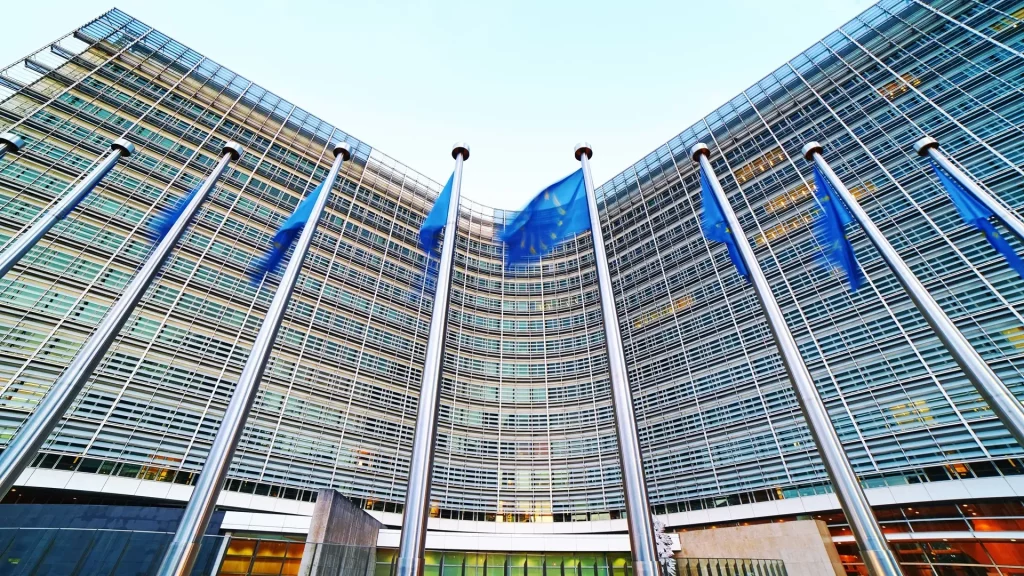The European Parliament has finally approved a review of the Energy Performance of Buildings Directive (EPBD), which will make rooftop solar panels mandatory for new buildings from 2027.
With the amendment to the EPBD Directive, all new buildings must also be completely zero-emissions from 2030. New buildings used or owned by public authorities must be so from 2028.
Heat pump
Moreover, EU member states will have to take measures to reduce average household primary energy consumption by at least 16% by 2030, and by at least 20 to 22% by 2035. According to the new directive, EU countries must Renovate the 16 percent less energy efficient buildings that are not intended for residential use by 2030 at the latest. This should extend to 26% of the worst performing buildings by 2033 at the latest.
There is also a European ultimate goal to phase out fossil fuel boilers by 2040 at the latest. Financial support for 'stand-alone' fossil fuel boilers will be banned from 2025. Financial incentives remain possible for hybrid heating systems, such as systems where the boiler is combined with a heat pump or solar system.
|
Building energy performance guidelines in brief Through the European Energy Performance of Buildings Directive – or the Energy Performance of Buildings Directive (EPBD) – the EU wants to improve the energy efficiency of buildings and reduce energy consumption. The previous version of the EPBD – EPBD III – dates back to the summer of 2018. The Directive was implemented into national legislation and regulations by both Belgium and the Netherlands before the mandatory deadline of 10 March 2020. The European Commission proposed a review of the EPBD Directive at the end of 2021. The Ministers agreed The European Energy Council reached an agreement in the Council of the European Union in October 2022, and the European Parliament approved it in March 2023 by a majority of 343 votes to 216, with 78 abstentions. Last December, the European Parliament reached an agreement with the Council of the European Union – where the 27 member states are represented – and that agreement has now been voted on. The European Parliament adopted the directive by a majority of 370 votes to 199, with 46 abstentions. The EU Council must now also formally approve the text of the amended directive, after which it will enter into force. |
Clear as day
In addition, Member States should make rooftop solar panels increasingly mandatory. For example, the text of the EPBD Directive includes the following passage: “To enable cost-effective installation of solar technologies at a later stage, all new buildings must be ‘solar-ready’, i.e. designed to optimize solar energy.” Possibility of generating energy based on on-site solar radiation, so that solar energy technologies can be installed without expensive structural interventions.
This means that Member States must ensure that buildings are suitable for installing solar panels or solar collectors with a solar boiler.
Solar panel commitment
In addition, Article 10 of the revised EPBD Directive is entirely dedicated to the mandatory deployment of solar panels. In practice, solar installations should be implemented – provided that the buildings are technically suitable, economically and functionally feasible – in the following cases:
- No later than December 31, 2026: on all new public and non-residential buildings with a usable floor area exceeding 250 square metres;
- No later than December 31, 2027: On all existing public buildings whose usable area exceeds 2,000 square metres;
- No later than December 31, 2028: On all existing public buildings whose usable floor area exceeds 750 square metres;
- No later than December 31, 2030: On all existing public buildings whose usable area exceeds 250 square metres;
- No later than December 31, 2027: On existing non-residential buildings with a usable floor area of more than 500 square metres, if the building is undergoing a major renovation or procedure requiring a permit for building renovation, roof work or installation of a technical building system;
- No later than December 31, 2029: On all new residential buildings and all new covered parking lots adjacent to residential buildings.
Happy European dome
Jan Osenberg, senior policy advisor at pan-European organization SolarPower Europe, is delighted. “By adopting the EU Solar Standard, the European Parliament represents a major milestone in accelerating the deployment of renewable energy. This solar standard puts energy in the hands of citizens and will ensure that the energy transition takes place in the places where we sleep, work and live.

“Coffee buff. Twitter fanatic. Tv practitioner. Social media advocate. Pop culture ninja.”











More Stories
Strong increase in gas export pipeline from Norway to Europe
George Louis Bouchez still puts Julie Tatton on the list.
Thai Air Force wants Swedish Gripen 39 fighter jets